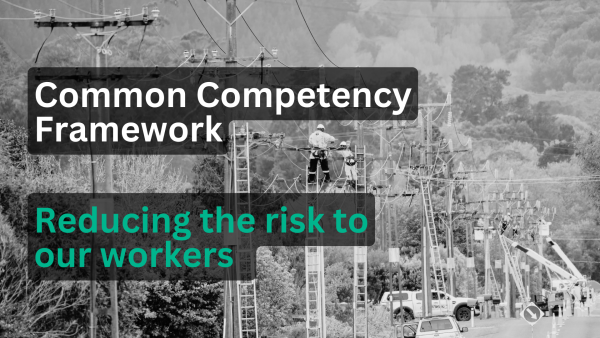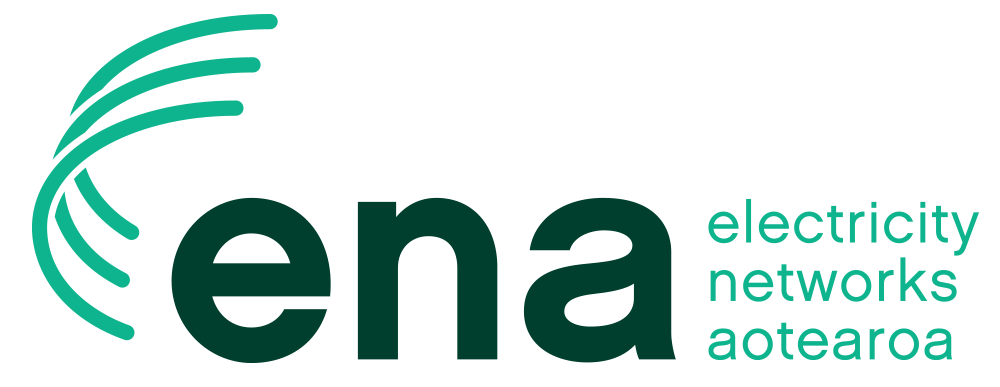Common Competency Framework
The Common Competency Framework (CCF) sets the minimum levels of knowledge, skills, and experience required for anyone working on or near distribution network assets. The purpose of this framework is to help the electricity distribution sector reduce risk to workers and the public.
By having a common set of competencies — and therefore doing the same things in the same ways — it also helps the sector to be more efficient and cost-effective when workers and contractors are moving between businesses. This becomes increasingly important in emergency situations when workers may need to help other across the sector.
The CCF was developed by organisations in the electricity distribution sector and is supported by the EDI Health and Safety Forum. It was first developed in 2018 and is maintained and updated regularly.
The CCF principles are:
- Common — it should focus on commonalities within the EDI sector, in terms of the type of work carried out, and the tools and technologies utilised in that work.
- Usable — individual workers must be able to achieve the stated competency by following a process. (This also requires it to be available.)
- Transportable — commonality should allow a competent worker to move from one participating organisation to work on the assets of another.
- Auditable — it remains relevant with a clear alignment between the individual competencies, the aligned knowledge framework, and the training workers receive.
- Updateable — it is a living document, owned by industry and managed on behalf of industry by a group who will ensure it remains current and fit for purpose.
ENA Common Competency Framework (Version 1.6)
The framework linked above is presented in MS Excel format. It defines classes and sub-classes of competence. For the purposes of consistency, Unit Standards are used in the aligned knowledge framework. These are subject to change as qualifications evolve, and they are presented only as a guide when aligning knowledge with competency outcomes.
ENA CCF Guidelines (Version 1.7)
The guidelines linked above includes arrangements for governance and management, criteria and guidelines to support implementation, and some high-level process to support on-boarding of workers and consistency of operation.
Older versions of the framework and guidelines
We know that EDBs may not be able to update their own guidelines or competency classes every time there is an update to the CFF. For transparency, we have listed the earlier versions of the framework and guidelines below. There is a change register (appendix 3 of the guidelines) that displays what changes have been made for each version.
- ENA Common Competency Framework V1.5
- ENA Common Competency Framework V1.4
- ENA Common Competency Framework V1.3
- ENA Common Competency Framework V1.2
- ENA Common Competency Framework V1.1
- ENA Common Competency Framework V1.0
- ENA CCF Guidelines V1.6
- ENA CCF Guidelines V1.5
- ENA CCF Guidelines V1.4
- ENA CCF Guidelines V1.3
- ENA CCF Guidelines V1.2
- ENA CCF Guidelines V1.1
- ENA CCF Guidelines V1.0
Get in touch
If you have any questions, concerns, or good ideas about the CFF, please email ccf@electricity.org.nz.



